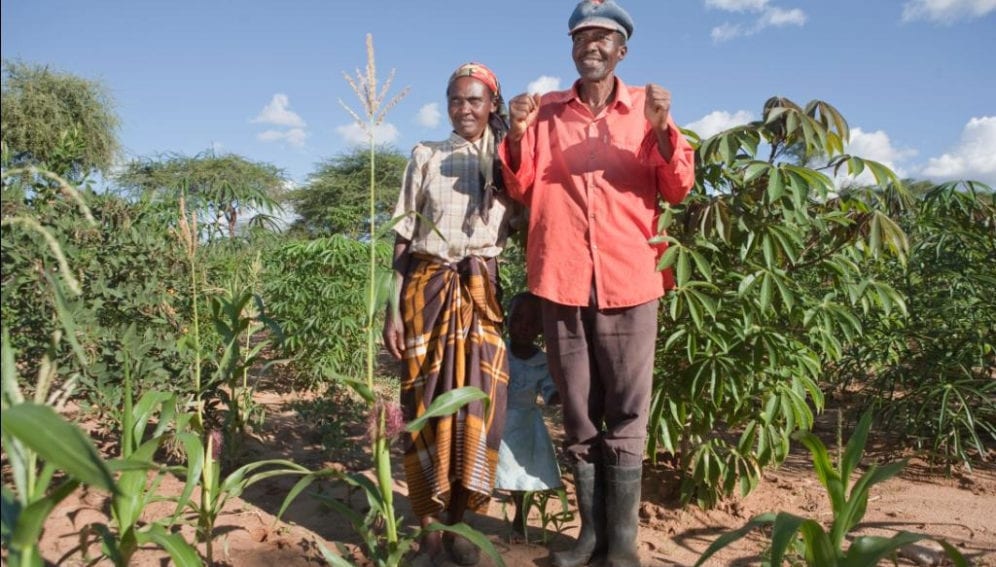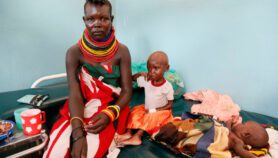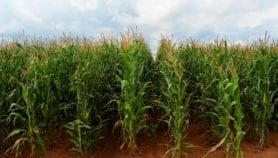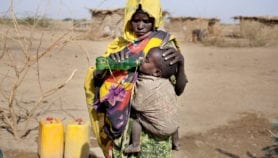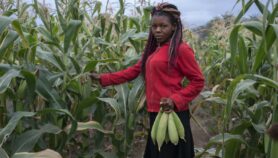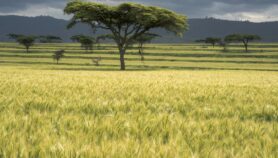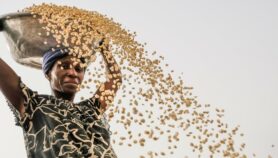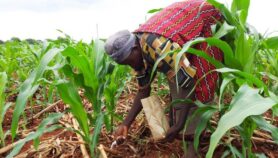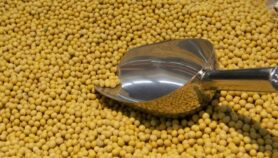By: Joe DeVries
Send to a friend
The details you provide on this page will not be used to send unsolicited email, and will not be sold to a 3rd party. See privacy policy.
A locally owned, alternative model of supplying affordable seed is working for Africa’s framers, says Joe DeVries.
Smallholder farmers in Africa — mostly women — wage silent battles against the elements and other forces beyond their control to feed their families, their villages, their countries.
They have historically taken the lead in feeding Africa and are destined to continue playing this role for the foreseeable future. They are immensely hard-working, smart, resourceful, and above all courageous. They face a host of natural, climatic, and man-made threats to their lives and livelihoods. Often, their only defence seems to be more work, more suffering, and reduced expectations for the future.
Most of the world was once caught up in this same struggle. A few vocal anti-technology activists would have us believe otherwise, but the extent to which historically-agrarian societies have emerged from poverty and hunger largely depends on their adoption of modern farming technologies.
Principal among these has been seed of improved, higher-yielding crop varieties. While mechanisation, fertilisers, improved storage, and other technologies are all important in making farming more efficient, better seed is the catalyst for change — the ‘software’ that powers the crop and lets farmers profitably integrate other technologies.
Without good seed, few other attempts to increase farmers’ yields succeed or prove sustainable. Yet in spite of much ink spilled, international conferences organised, and money spent, Sub-Saharan Africa’s smallholder farmers still have very limited access to seed of high-yielding, locally-adapted varieties of their staple food crops.
The seed supply problem
As it turns out, establishing dependable systems for supplying seed of improved varieties is probably the most difficult part of agricultural development.
Seed is a living technology, notoriously picky about its environment and hugely unforgiving of neglect, late delivery, or being planted in the wrong place. Moreover, Africa’s highly diverse cropping landscape creates micro-climates that require myriad location-specific varieties.
“Without good seed, few other attempts to increase farmers’ yields succeed or prove sustainable. Yet in spite of much ink spilled, international conferences organised, and money spent, Sub-Saharan Africa’s smallholder farmers still have very limited access to seed of high-yielding, locally-adapted varieties of their staple food crops.”
Joe DeVries, AGRA
In Africa, the dream of solving the seed supply problem has seen more than its share of false starts. Governments and donor agencies have intervened with ambitious projects that failed to account for local farmer preferences or long term viability. Most have ended badly, leaving a legacy of low quality seed, broken supply chains, rusted seed processors, and disappointed farmers.
Africa's farmers have continued planting whatever seed they have on-hand, all the while suffering the indignity of being thought resistant to change and uninterested in new technologies.
It is time to get things right for Africa's farmers. By its very nature, supplying improved seed, much like furniture-making or hotel management, is mostly a business proposition — a complex and rather unglamorous business, perhaps, but a business nonetheless.
Business proposition
A group of us at the Rockefeller Foundation came to this conclusion in the early 2000s. We needed businesspeople who understood that their potential customers tended to be very poor, lived in remote locations, and were mostly unaware of the value of new seeds. We needed people who could understand which seeds smallholder farmers would purchase, how much they would pay for them, and in what quantities they were needed.
We turned to local business people and started lots of conversations, often in small dusty rooms, about whether they thought they could make a viable business out of seed. They assured us they could, if they were given proper business and policy support to sell the right seed, at the right prices, the right way.
We listened in fascination, often with doubts ricocheting around our minds. Yet these people seemed to understand something that others didn’t. So we went with it.
The first attempts were disappointing but instructive. Two early companies quickly failed, not for lack of demand but from poor management. Soon a second generation of companies displayed a deeper understanding, both of farmers and of business fundamentals.
A few key principles began to emerge. New seed had to be affordable as well as desirable. It had to be available in small packages of 2 kilograms or less. It needed to be readily available at local shops when it was needed. And farmers needed to be made aware of the new seed in convincing ways — the best being small demonstration plots on their own land.
Seed pioneers
The work continues today through the Alliance for a Green Revolution in Africa’s (AGRA) Program for Africa’s Seed Systems and some very intrepid business people.
People like Maimouna Coulibaly of Faso Kaba seed company in Mali, Saleem Ismael of Western Seed in Kenya, Abdoulaye Sawadogo of Nafaso in Burkina Faso, Issoufou Maizama, who runs Alheri Seeds in Niger, and Chris Kaijuka (FICA seeds), Nicolai Rodeyns (NASECO seed company) and Josephine Okot (Victoria Seeds), based in Uganda.
They are the seed business pioneers who first managed to test and perfect models for contract seed production, selling via agricultural dealers in small packages, and installing low-cost processing machinery.
This model for supplying Africa's smallholder farmers with improved seed diverges significantly from the mainstream. Once established, it does not rely on funding from governments, NGOs, or donors operating from distant lands. And it contrasts sharply with the image of large, multi-national seed companies dominating the hybrid maize sector while largely neglecting other crops.
It begins with consultations between farmers and breeders to establish the optimal combination of crop traits. It continues with farmer-participation in breeding and selecting improved varieties, a process that can take several years. Once a new variety is released, breeders teach local companies how to produce the seed at scale. Seed companies integrate production, processing, and marketing activities and ‘live or die’ based on their ability to supply quality seed to local farmers at affordable prices.
National crop breeding groups supported by AGRA have released over 400 new crop varieties in the past seven years. In 2012, 80 seed companies produced a total of 57,000 metric tonnes of certified seed.
The model works. And best of all, it operates, grows and innovates through local forces.
Things just may be looking better for Africa’s long-suffering farmers. Official crop yield data from countries as diverse as Ethiopia, Mali, Tanzania and Uganda show significant increases in recent years.
Joe DeVries led the development of the Program for Africa’s Seed Systems while at the Rockefeller Foundation, and is now the programme’s director, based at the Alliance for a Green Revolution in Africa (AGRA). He can be contacted at [email protected]
This article is part of the Spotlight on Ensuring food security for the future.


